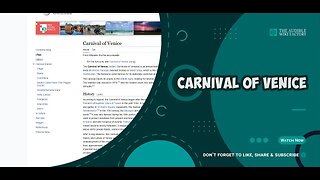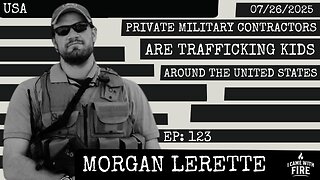Premium Only Content

Alexander Hamilton was an American military officer, statesman, and Founding Father who served
Alexander Hamilton (January 11, 1755 or 1757 – July 12, 1804) was an American military officer, statesman, and Founding Father who served as the first United States secretary of the treasury from 1789 to 1795.
Born out of wedlock in Charlestown, Nevis, Hamilton was orphaned as a child and taken in by a prosperous merchant. He pursued his education in New York before serving as an artillery officer in the American Revolutionary War. Hamilton saw action in the New York and New Jersey campaign, served for years as an aide to General George Washington, and helped secure American victory at the Siege of Yorktown. After the war, Hamilton served as a delegate from New York to the Congress of the Confederation. He resigned to practice law and founded the Bank of New York. In 1786, Hamilton led the Annapolis Convention to replace the Articles of Confederation with the Constitution of the United States, which he helped ratify by writing 51 of the 85 installments of The Federalist Papers.
As a trusted member of President Washington's first cabinet, Hamilton led the Department of the Treasury. He envisioned a central government led by an energetic president, a strong national defense, and an industrial economy. He successfully argued that the implied powers of the Constitution provided the legal authority to fund the national debt, assume the states' debts, and create the First Bank of the United States, which was funded by a tariff on imports and a whiskey tax. He opposed American entanglement with the succession of unstable French Revolutionary governments and pushed for the Jay Treaty, which resumed friendly trade relations with Great Britain. He also persuaded Congress to establish the Revenue Cutter Service. Hamilton's views became the basis for the Federalist Party, which was opposed by the Democratic-Republican Party led by Thomas Jefferson.
After resigning from the secretaryship, Hamilton resumed his legal and business activities. He supported the abolition of international slave trade. In the Quasi-War, Hamilton called for mobilization against France and President John Adams appointed him as major general, but the army did not see combat. Outraged by the president's response to the crisis, Hamilton opposed Adams' re-election campaign. Jefferson and Aaron Burr tied for the presidency in the electoral college and, despite philosophical differences, Hamilton elected Jefferson to defeat Burr, whom he found unprincipled. Vice President Burr ran for governor of New York in 1804 and Hamilton campaigned against him as unworthy. Taking offense, Burr challenged him to a duel in which Burr shot Hamilton, who died the next day.
Scholars generally regard Hamilton as an astute and intellectually brilliant administrator, politician, and financier, if often impetuous. His ideas are credited with laying the foundation for American government and finance.
EARLY LIFE AND EDUCATION
Alexander Hamilton was born and spent part of his childhood in Charlestown, the capital of the island of Nevis in the British Leeward Islands. Hamilton and his older brother James Jr. were born out of wedlock to Rachel Faucette, a married woman of half-British and half-French Huguenot descent, and James A. Hamilton, a Scotsman who was the fourth son of Alexander Hamilton, the laird of Grange, Ayrshire.
Hamilton's mother had been married previously on Saint Croix, then ruled by Denmark, to Danish or German merchant Johann Michael Lavien. They had one son, Peter Lavien. In 1750, Faucette left her husband and first son before travelling to Saint Kitts, where she met James Hamilton. Hamilton and Faucette moved together to Nevis, her birthplace, where she had inherited a seaside lot in town from her father. The Church of England denied membership and education to Alexander...
LINK TO ARTICLE: http://en.wikipedia.org/wiki/Alexander_Hamilton
TAGS: Alexander Hamilton, United States Secretaries of the Treasury, The Federalist Papers, Signers of the United States Constitution, Saint Kitts and Nevis emigrants to the United States, Philosophers from New York (state), People of the American Enlightenment, People from Saint Croix U.S. Virgin Islands, People from New York City, People from Nevis, New York (state) lawyers, New York Post people, New York (state) militiamen in the American Revolution, New York (state) in the American Revolution, New York (state) Federalists, Members of the New York Manumission Society, Members of the American Philosophical Society, Inspectors General of the United States Army, Huguenot participants in the American Revolution, Hamilton family, Hall of Fame for Great Americans inductees, Fellows of the American Academy of Arts and Sciences, Economists from New York (state), Deaths by firearm in New Jersey
#GeneralKnowledge #AudibleWikiFactory #Audible #Wikipedia #AlexanderHamilton
-
 13:12
13:12
The Audible Wiki Factory
2 years agoThe Carnival of Venice is an annual festival held in Venice, Italy. The carnival ends on Shrove
540 -
 18:22
18:22
Liz Wheeler
3 hours agoWhat Ghislaine Maxwell Knows
5.97K12 -
 LIVE
LIVE
cosmicvandenim
6 hours agoWARZONE - Kenetik Energy Announcement - Discord Spy Bots
96 watching -
 1:05:51
1:05:51
Jeff Ahern
3 hours ago $16.99 earnedThe Saturday Show with Jeff Ahern
93.6K11 -
 LIVE
LIVE
Misfit Electronic Gaming
1 hour ago"LIVE" RUMBLE HALO Spartans "Halo MCC" 23 Followers to go till we hit !000 RUMBLE TAKEOVER
13 watching -
 1:57:13
1:57:13
Film Threat
5 hours agoLIVE FROM SAN DIEGO COMIC-CON! (Saturday) | Film Threat Live
12.6K -
 31:40
31:40
Tactical Advisor
3 hours agoEveryone Talks About This AR15 Being The Best? | Vault Room Live Stream 034
59.5K4 -
 1:08:53
1:08:53
Michael Franzese
18 hours agoHollywood Deaths & Political Secrets: A Nation at a Crossroads?
152K98 -
 9:27
9:27
MattMorseTV
1 day ago $16.07 earnedHe just lost EVERYTHING.
64.1K78 -
 1:40:30
1:40:30
I_Came_With_Fire_Podcast
16 hours agoPrivate Military Contractors Are TRAFFICKING KIDS Around The United States
40.8K26